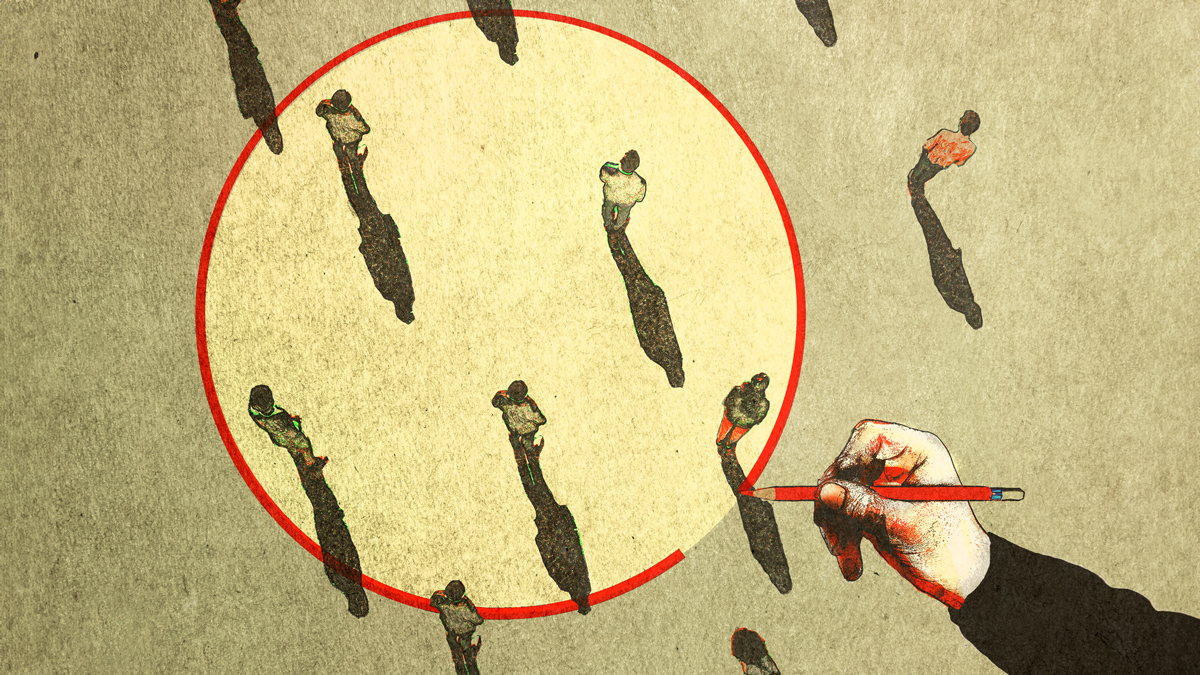ADWEEK House is headed to Las Vegas on January 8! Our house is your house to unwind, recharge and network during the industry’s largest consumer tech moment. RSVP.
In 2023, NHL policy around sanctioned Pride jerseys was reconsidered because seven players—less than 1% of NHL players—publicly refused wearing them. Circumstances like these aren’t representative of public sentiment, which is that more people (more than double) say their perception of a brand is positively influenced (39%) by Pride participation than negatively (17%).
Colin Kaepernick and Nike, Pattie Gonia and North Face—these are frequently referenced touchstones for how brands benefit from delivering on stated principles. Yet, especially following the election, adland finds ourselves questioning the trajectory of brands’ DEI practices meant to engage a wider variety of people and to give them equity. Doubt was notably cast by brands like Harley-Davidson, John Deere, and Molson Coors, publicly dialing back DEI commitments under the premise of “a broader view in which all our employees know they are welcome.” Ironically, this statement is meant to evoke inclusive sentiment while cutting inclusion practice. Impending changes in public policy will only serve to make these contradictions more widespread.
Seven brands is no small figure, given the volume of employees and consumers they comprise. But also, if 1,400 companies shared information with the 2025 Corporate Equality Index—the highest it’s ever had—we know those seven don’t reflect the current trajectory of brand interest in the LGBTQ+ community.
I’ve encountered headlines, colleagues, and conversations expressing that fatigue around the very word “DEI” is central to the trend of rescinded brand commitment, especially in the election year. And given the outcome of the vote, I suspect those sentiments will increase exponentially. But the linguistics are interesting, as the average person seeking fairness doesn’t usually ask for “DEI.” They ask for payment commensurate with performance. They ask for a commute fitting their family schedule. They ask for safe office access. While the practice and word have been politicized, its impact is simply human.
While some constrict their perception of the term, its meaning among practitioners is expanding to include neurodiversity, caregivers, mental health, disability, and accessibility. The perception that DEI is for “the few” is off, as the term encompasses pretty much everyone in some way.
Why tell companies to stop figuring out the work of including people? The motivation is not compromise; if you’re lobbying against inclusion that builds business, you’re asking companies to reject the discomfort of change at the expense of their futureproofing. You’re selling the past as the future, to marketers perhaps more comfortable with the past.
And so, people increasingly discuss whether or not DEI as a concept needs a rebrand. If we suspect it does, adland needs to provide our expertise to embrace its evolution, shaping a tomorrow where we effectively assert its proven value for an ever more diverse world. What elements of the DEI “brand” must we champion to preserve its essential impact?
Shift from sentiment to business metrics
In the interest of profitable business, DEI must be a metrics conversation more than a values conversation. For some campaigns, sentiment metrics are meaningful—but the more you prove the connection between sentiment and conversion, the better. Instead of relying on metrics showing that messages will attract LGBTQ+ and ally attention, close the loop in the consumer journey; connect inclusive ad placements and creative messages to the sales they drove.
Instead of relying on metrics that prove all companies benefit from diverse leadership, run analysis to explore how your company directly profits from inclusion policy. For every program you develop and policy you institute, state the direct financial reward you expect for that reward—and over what time period. That way, if any lobbyist says, “You’re not profiting from DEI,” you have a foundation in place in terms of what you fiscally expected to begin with.
Shift from specialization to innovation
While DEI bears very specialized skill sets, that’s led to siloing more than integration. DEI pros and ERGs too often get welcomed in only for specialized problems. But given that DEI is the general practice of applying new perspectives for business growth—the very promise of advertising—the DEI brand must feel less like specialization and more like an innovation driver.
You would never run a campaign without inputs from business and agency leadership, creative, and strategy. They treat those areas as proactive growth engines, while DEI is regarded as a safeguard for those other areas. So DEI must reinvent its value. That’s actually great; lots of smart businesses thrived because of pressures to reimagine. Highlight and promote fresh DEI tactics being invented across your teams, versus relying solely on established methods like diversity training and hiring policies. If established practices could fix all our problems, they’d have worked by now. What’s next?
Shift from authenticity to integrity
“Authenticity”—more and more I see it used as a reflection of how marketers feel. All our missteps and exclusions to date have been shaped by “authentic” intent. But intent means nothing without impact. DEI must focus on integrity, which is when you do what you say you’ll do. Brands: Learn that values are about you, but integrity is about us.
For every stated value, create your list of behaviors that exemplify that behavior. We’ve done it, though I admit we should expand it as a behavioral code of ethics—and so should you. Got an ERG? Publicly state how you’ve structured it to inform your creative product and policymaking. CEOs: Declare the ways you’re personally tied to DEI initiatives beyond a commitment to the company’s values. Agencies who are “big on culture”: State how you elevate and empower historically underrepresented people to intentionally shape cultural elements.
It’s a big business problem when people prioritize desires that brands dismiss. And when you dismiss the new, you prioritize the established. And if the establishment had treated us well, I promise you that folks would not spend their free time on the fight for basic fairness. Even if you feel you can’t approach change as a DEI expert, you can approach the DEI brand like a marketer, letting business growth inspire your connection to progress.





